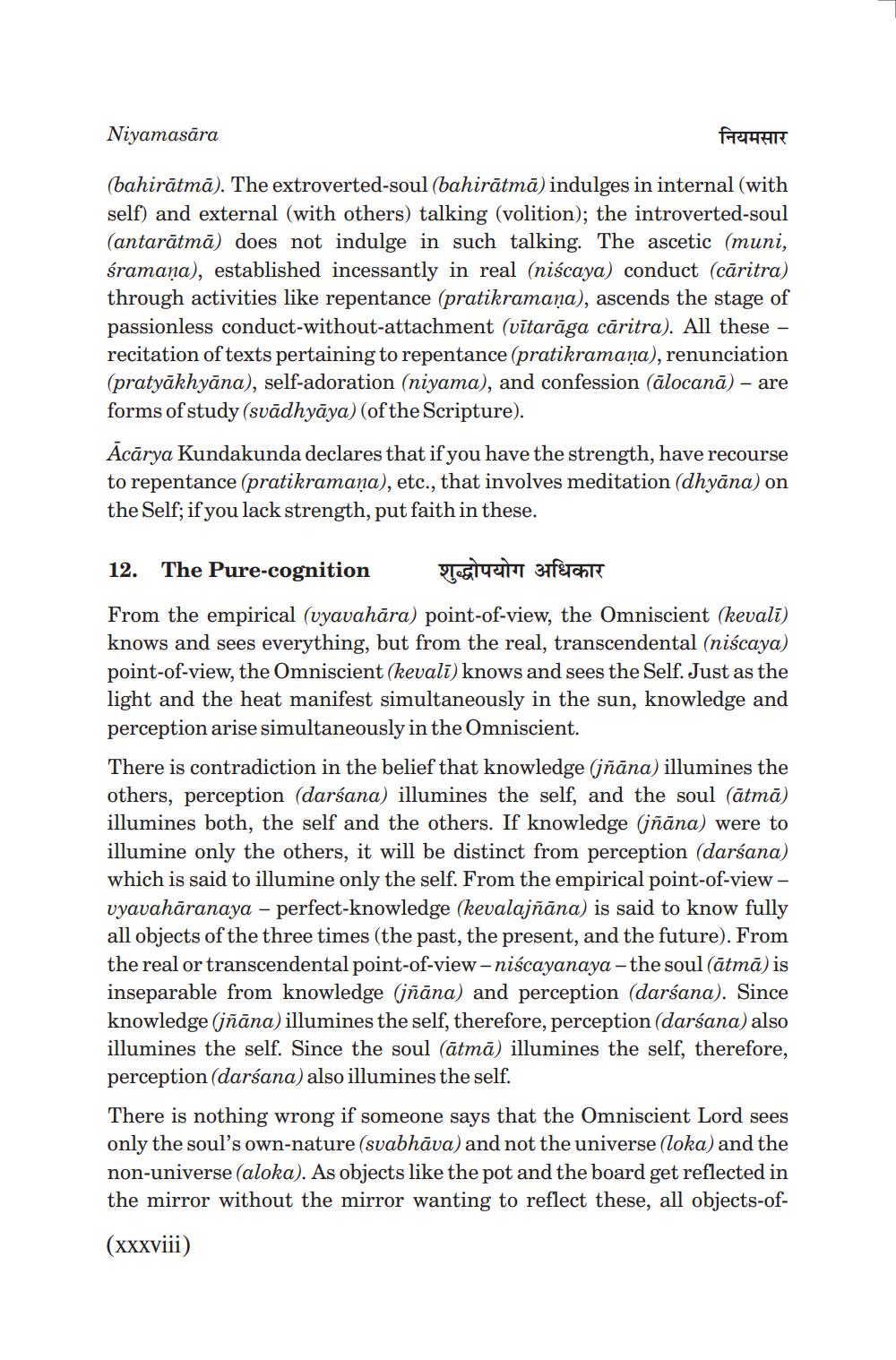________________
Niyamasāra
नियमसार
(bahirātmā). The extroverted-soul (bahirātmā) indulges in internal (with self) and external (with others) talking (volition); the introverted-soul (antarātmā) does not indulge in such talking. The ascetic (muni, śramaņa), established incessantly in real (niscaya) conduct (cāritra) through activities like repentance (pratikramaņa), ascends the stage of passionless conduct-without-attachment (vītarāga cāritra). All these - recitation of texts pertaining to repentance (pratikramana), renunciation (pratyākhyāna), self-adoration (niyama), and confession (ālocanā) - are forms of study (svādhyāya) (of the Scripture).
Acārya Kundakunda declares that if you have the strength, have recourse to repentance (pratikramaņa), etc., that involves meditation (dhyāna) on the Self; if you lack strength, put faith in these.
12. The Pure-cognition
Teslueint 3fechar
From the empirical (vyavahāra) point-of-view, the Omniscient (kevali) knows and sees everything, but from the real, transcendental (niscaya) point-of-view, the Omniscient (kevalī) knows and sees the Self. Just as the light and the heat manifest simultaneously in the sun, knowledge and perception arise simultaneously in the Omniscient.
There is contradiction in the belief that knowledge (jñāna) illumines the others, perception (darśana) illumines the self, and the soul (ātmā) illumines both, the self and the others. If knowledge (jñāna) were to illumine only the others, it will be distinct from perception (darśana) which is said to illumine only the self. From the empirical point-of-view - vyavahāranaya - perfect-knowledge (kevalajñāna) is said to know fully all objects of the three times (the past, the present, and the future). From the real or transcendental point-of-view-niscayanaya - the soul (ātmā) is inseparable from knowledge (jñāna) and perception (darśana). Since knowledge (jñāna) illumines the self, therefore, perception (darśana) also illumines the self. Since the soul (ātmā) illumines the self, therefore, perception (darśana) also illumines the self.
There is nothing wrong if someone says that the Omniscient Lord sees only the soul's own-nature (svabhāva) and not the universe (loka) and the non-universe (aloka). As objects like the pot and the board get reflected in the mirror without the mirror wanting to reflect these, all objects-of
(xxxviii)




